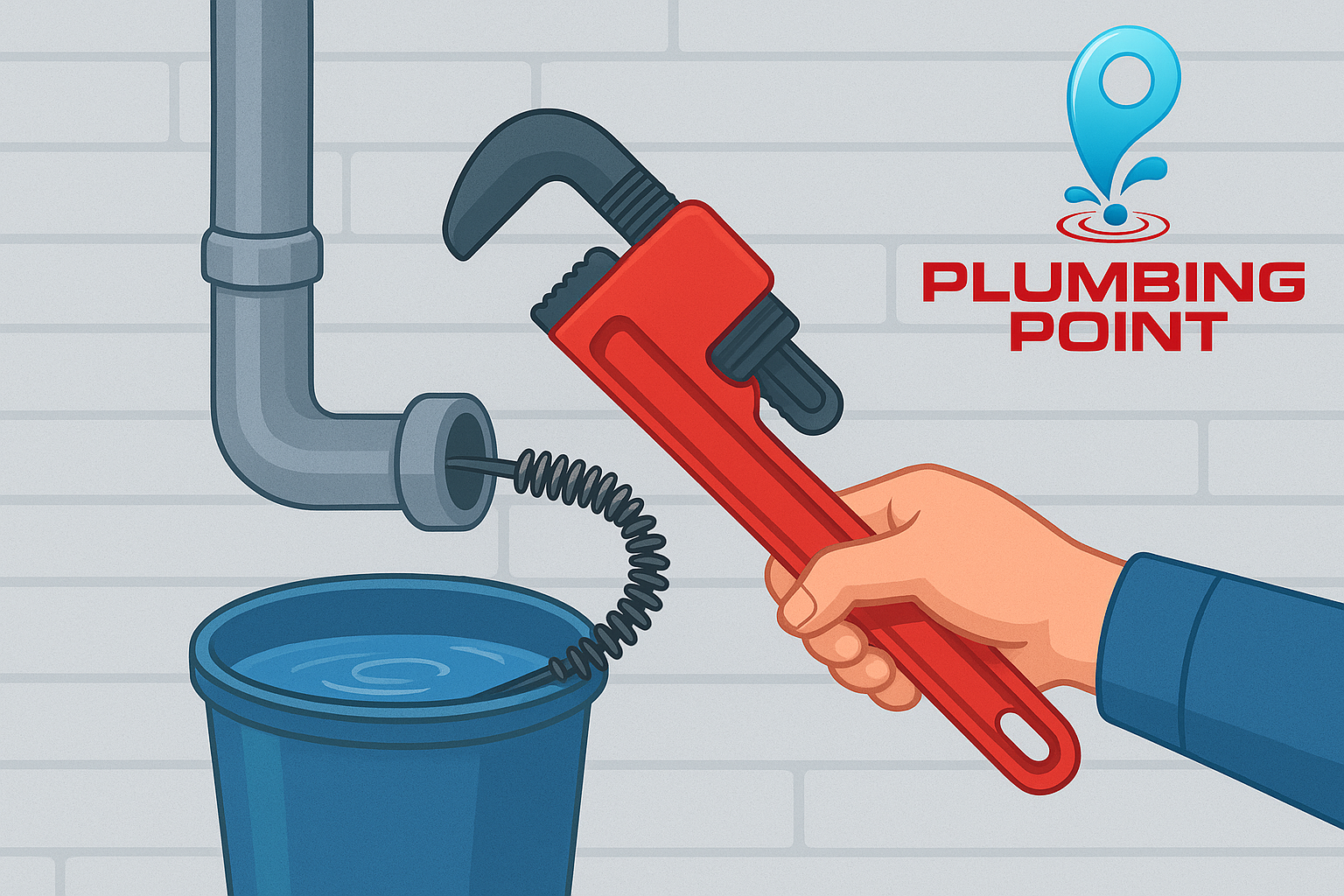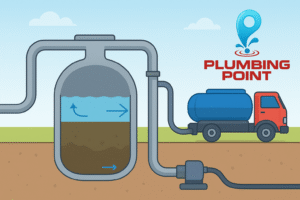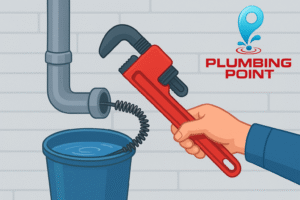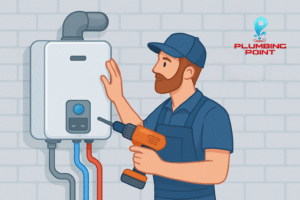|
Getting your Trinity Audio player ready...
|
Clogged drains are one of the most common household nuisances, often disrupting daily routines and causing frustration. The temptation to grab a plunger, a bottle of chemical cleaner, or even a homemade concoction is understandable, but opting for professional drain cleaning services ensures a safer and long-lasting solution.
But many homeowners wonder: is it safe to do DIY drain cleaning, or does it pose hidden risks? Understanding both the benefits and dangers of DIY drain cleaning is essential before reaching for any quick fix.
DIY Drain Cleaning Explained
DIY drain cleaning refers to the practice of clearing clogged drains using household tools or readily available products without the help of a professional plumber. It often involves plungers, drain snakes, baking soda and vinegar mixtures, or store-bought chemical cleaners. The appeal lies in convenience and cost savings, but the results are not always as straightforward as they seem.
Why People Choose DIY Drain Cleaning
Homeowners often prefer DIY solutions because they are fast, inexpensive, and seemingly simple. A clogged drain can disrupt cooking, cleaning, or even bathing, and the thought of waiting for a plumber or paying high service fees may encourage people to take matters into their own hands. Furthermore, the rise of online tutorials and do-it-yourself guides makes it appear that anyone can handle drain cleaning without difficulty.
The Appeal of Quick Fixes
The popularity of DIY drain cleaning is rooted in the desire for instant results. Pouring a chemical cleaner down the sink or pushing a plunger a few times can temporarily restore water flow. These immediate results are satisfying, creating the impression that the problem has been resolved. However, in many cases, the clog returns because the underlying issue was not properly addressed.
Risks of Using Chemical Drain Cleaners
One of the most common DIY methods involves chemical drain cleaners. While effective at breaking down grease, soap scum, and hair, these products often contain strong acids or bases that can corrode pipes over time. Frequent use may weaken plumbing systems, leading to leaks or even burst pipes. In addition, chemical cleaners pose health risks such as skin burns, respiratory irritation, and accidental poisoning if mishandled.
Mechanical DIY Tools and Their Challenges
Beyond chemicals, many homeowners turn to plungers or drain snakes for mechanical cleaning. While plungers are relatively safe, improper use of drain snakes can cause scratches or punctures in pipes. This is especially concerning for older plumbing systems, where pipes may already be fragile. A small mistake can lead to costly repairs that outweigh the savings of a DIY attempt.
Potential Health Hazards
DIY drain cleaning can expose individuals to harmful bacteria and mold that accumulate in clogged pipes. Drains harbor a mix of organic matter, waste, and microorganisms, which can release foul odors and airborne pathogens during cleaning. Without proper protective gear, such as gloves and masks, DIY efforts may pose health hazards.
Hidden Plumbing Issues
Another danger of relying solely on DIY methods is that they often treat only surface-level symptoms. A recurring clog might signal deeper plumbing issues such as tree root intrusion, collapsed pipes, or improper drainage slope. DIY cleaning cannot diagnose or fix these structural problems, which often worsen over time if left unaddressed.
Environmental Concerns with DIY Drain Cleaning
Chemical drain cleaners, when washed down pipes, may eventually enter local water systems. Their toxic components can harm aquatic life and contribute to water pollution. Even homemade solutions, if used excessively, may alter the balance of wastewater treatment systems. Choosing eco-friendly alternatives or professional cleaning methods can reduce environmental harm.
Safer Alternatives for DIY Drain Cleaning
Although risks exist, not all DIY methods are dangerous. Using boiling water to dissolve grease, baking soda with vinegar to break down mild clogs, or maintaining drains with strainers can be safe preventive measures. These methods, when done correctly, are less harmful to pipes and the environment. The key lies in knowing when a clog is minor enough for DIY cleaning and when professional intervention is required.
When DIY Works Best
DIY drain cleaning is best reserved for small, manageable clogs such as hair buildup in bathroom sinks or grease in the kitchen. For these minor blockages, a plunger or a gentle homemade solution can restore normal flow without significant risk. Regular maintenance, such as flushing drains with hot water or using strainers, can also prevent major clogs from forming in the first place.
When DIY Can Make Things Worse
Complicated clogs, especially those involving multiple drains or main sewer lines, should not be handled at home. Forcing tools into these systems can damage pipes, while repeated chemical use may cause more harm than good. Attempting to fix major plumbing problems without expertise often leads to higher repair costs in the long run.
Professional Plumbing vs DIY Drain Cleaning
Professional plumbers use advanced tools like hydro-jetting machines and cameras to identify and clear clogs safely. Unlike DIY methods, professional cleaning addresses both the immediate blockage and its root cause. While more expensive upfront, professional services ensure long-lasting results and protect your plumbing system.
The True Cost of DIY vs Professional Help
At first glance, DIY drain cleaning seems cost-effective. However, the hidden costs of pipe damage, health risks, and recurring clogs often outweigh the savings. Professional plumbing services, although pricier initially, can prevent repeated issues and protect the integrity of your home’s plumbing system. Considering long-term expenses, many homeowners find professional help to be the smarter investment.
The Psychology Behind DIY Attempts
The willingness to attempt DIY drain cleaning often stems from a sense of self-reliance and the satisfaction of solving a problem without external help. While this attitude can be empowering, it may also lead to underestimating the complexity of plumbing systems. Recognizing the limitations of DIY efforts is crucial to avoiding costly mistakes.
Preventing Clogs Without Risk
Instead of waiting for clogs to form, preventive habits can reduce the need for frequent cleaning. Avoid pouring grease, oil, or coffee grounds down the sink. Use drain strainers to catch food particles and hair. Regularly flush drains with hot water to clear small buildups before they become blockages. Preventive care reduces the need for risky DIY methods and extends the lifespan of your plumbing.
Is DIY Drain Cleaning Worth the Risk?
The answer depends on the severity of the clog and your level of experience. For small, manageable blockages, safe DIY methods can provide temporary relief. However, for deeper or recurring issues, professional assistance is the safer and more reliable choice. While DIY drain cleaning can save time and money in the short term, the potential risks often outweigh the benefits when it comes to complex plumbing problems.
People Also Asked Questions (FAQs)
Is it safe to do DIY drain cleaning?
Yes, it can be safe for minor clogs using gentle methods, but chemical cleaners and aggressive tools can damage pipes and pose health risks.
What is the safest DIY drain cleaning method?
A mixture of baking soda and vinegar followed by hot water is a safe and eco-friendly way to handle small clogs.
Can chemical drain cleaners damage pipes?
Yes, repeated use of chemical cleaners can corrode pipes, especially older plumbing systems, leading to leaks and costly repairs.
When should I call a plumber instead of trying DIY?
If clogs are recurring, multiple drains are blocked, or water backs up from the main line, it is best to call a professional plumber like Plumbing Point inc & Roto-Rooter.
Does DIY drain cleaning work long-term?
Most DIY methods provide only temporary relief. For long-lasting results, professional cleaning is often necessary.
Are natural drain cleaning methods effective?
Yes, natural methods like baking soda and vinegar can effectively clear mild clogs and help with routine maintenance.




